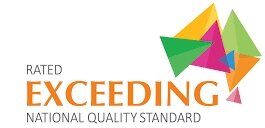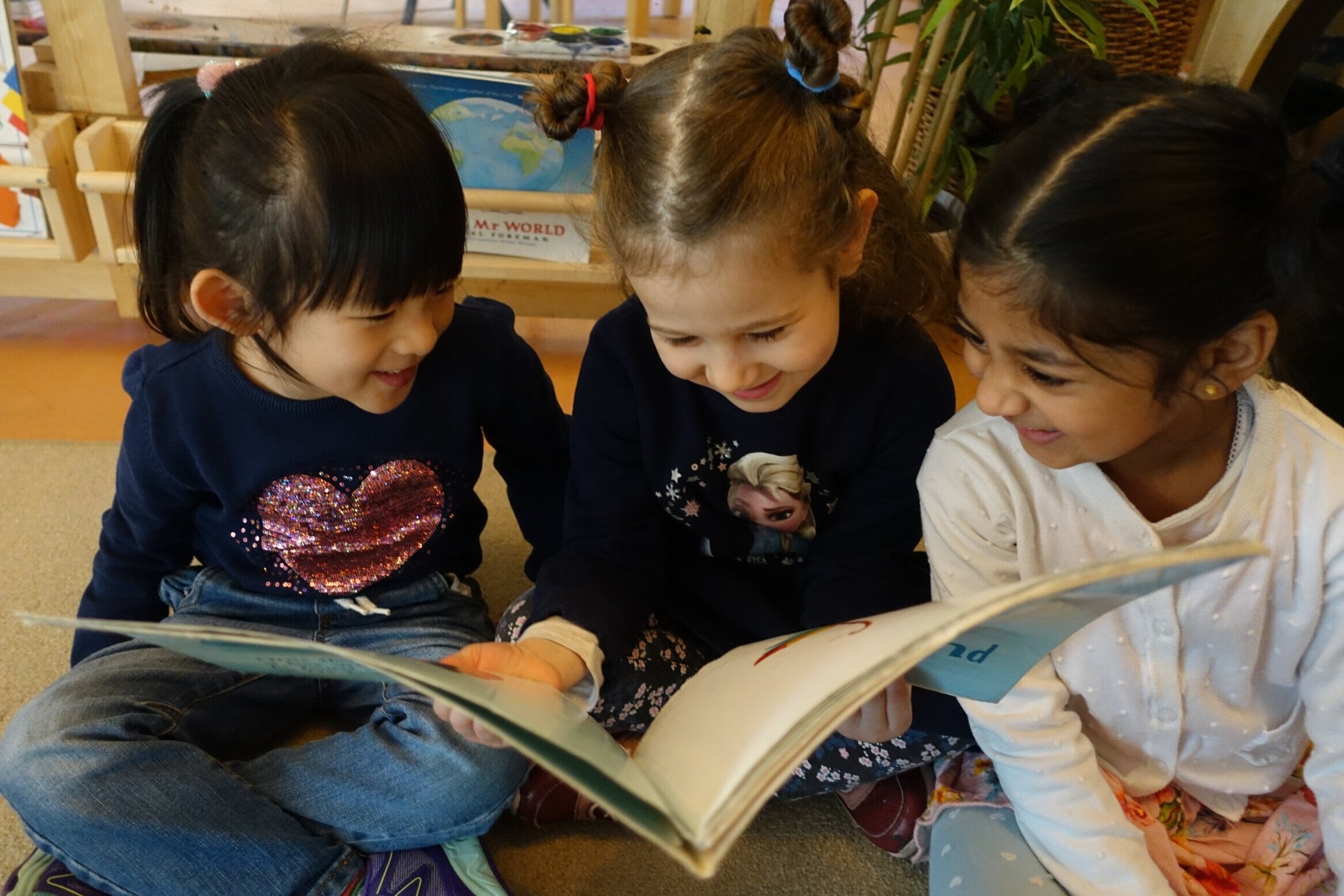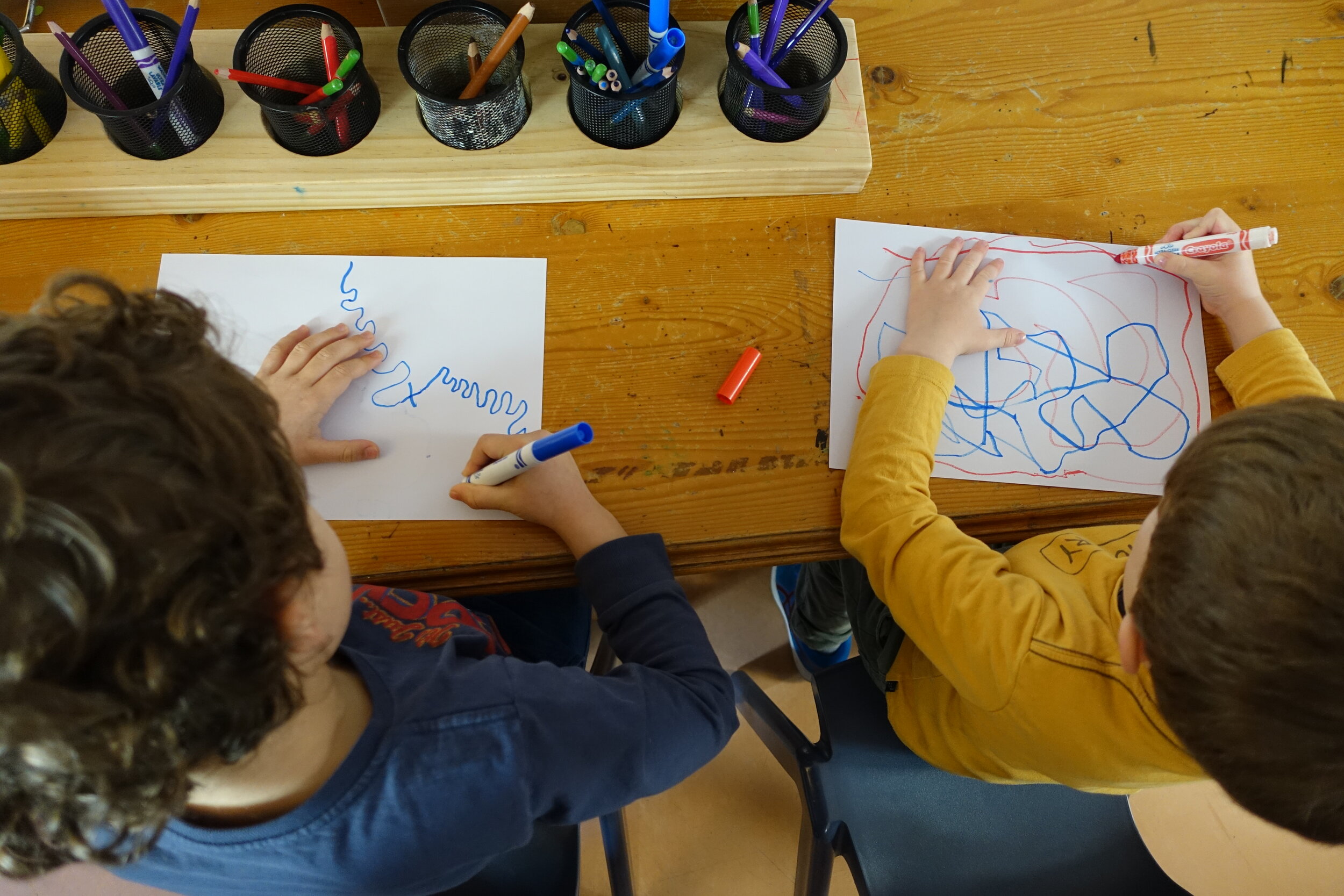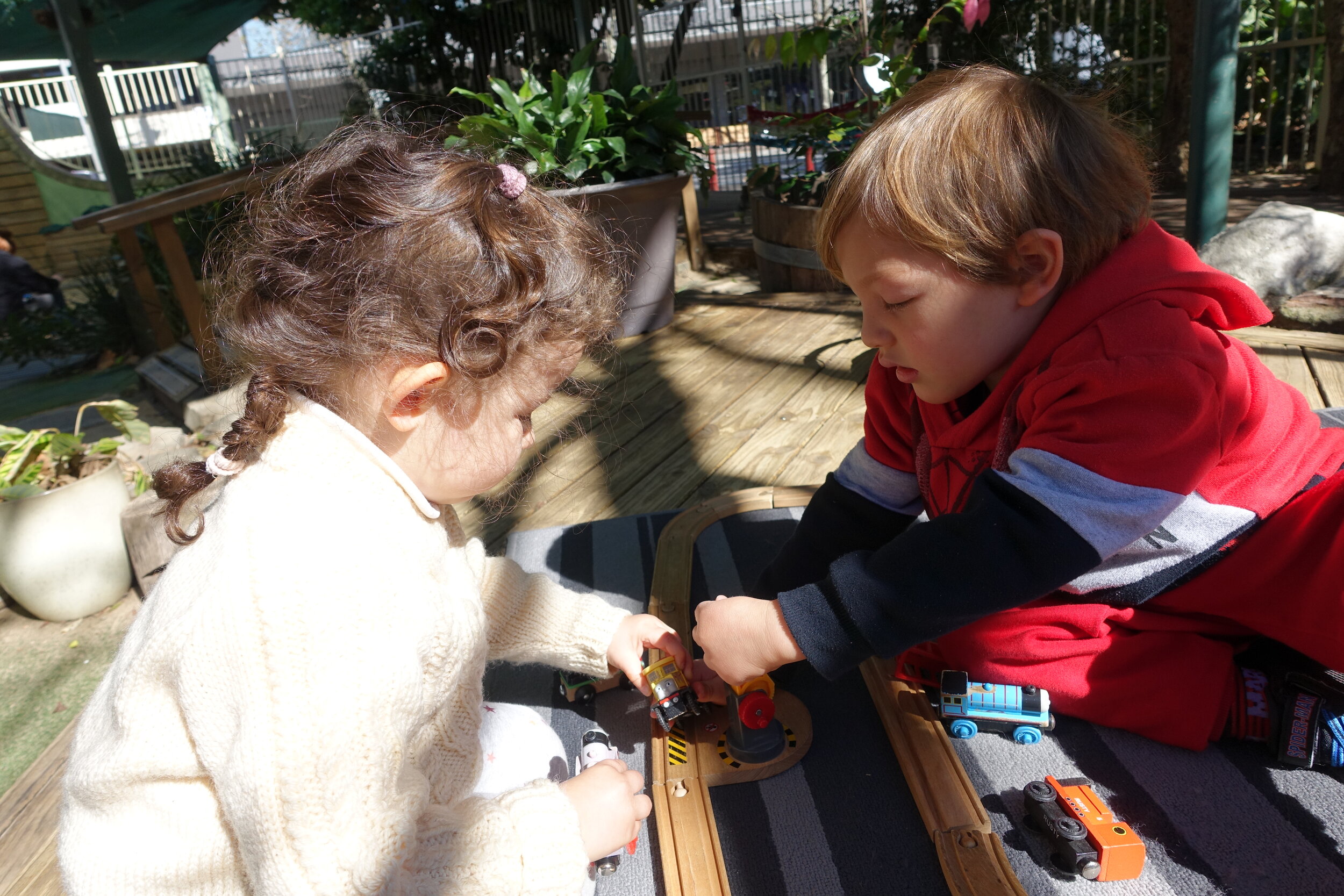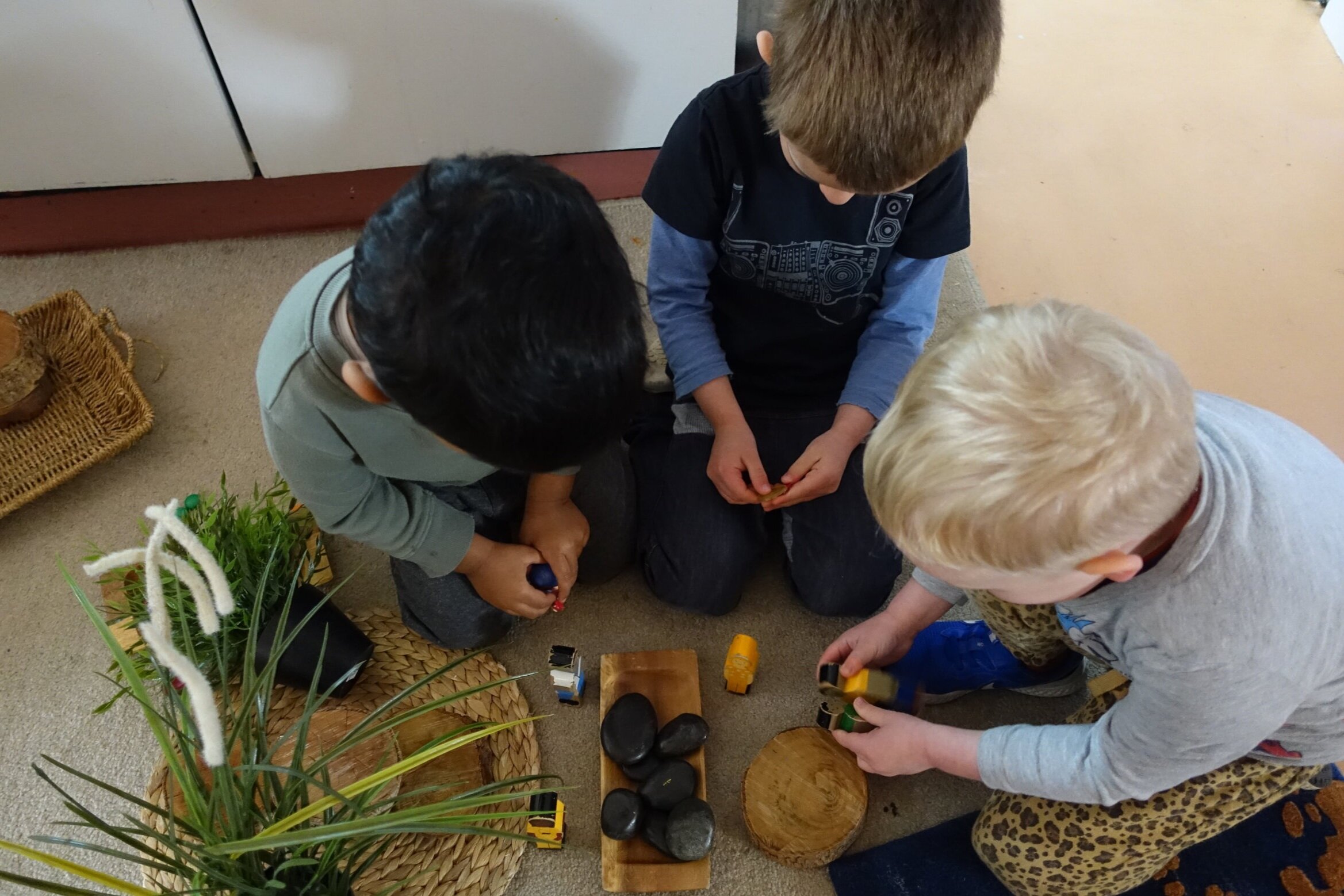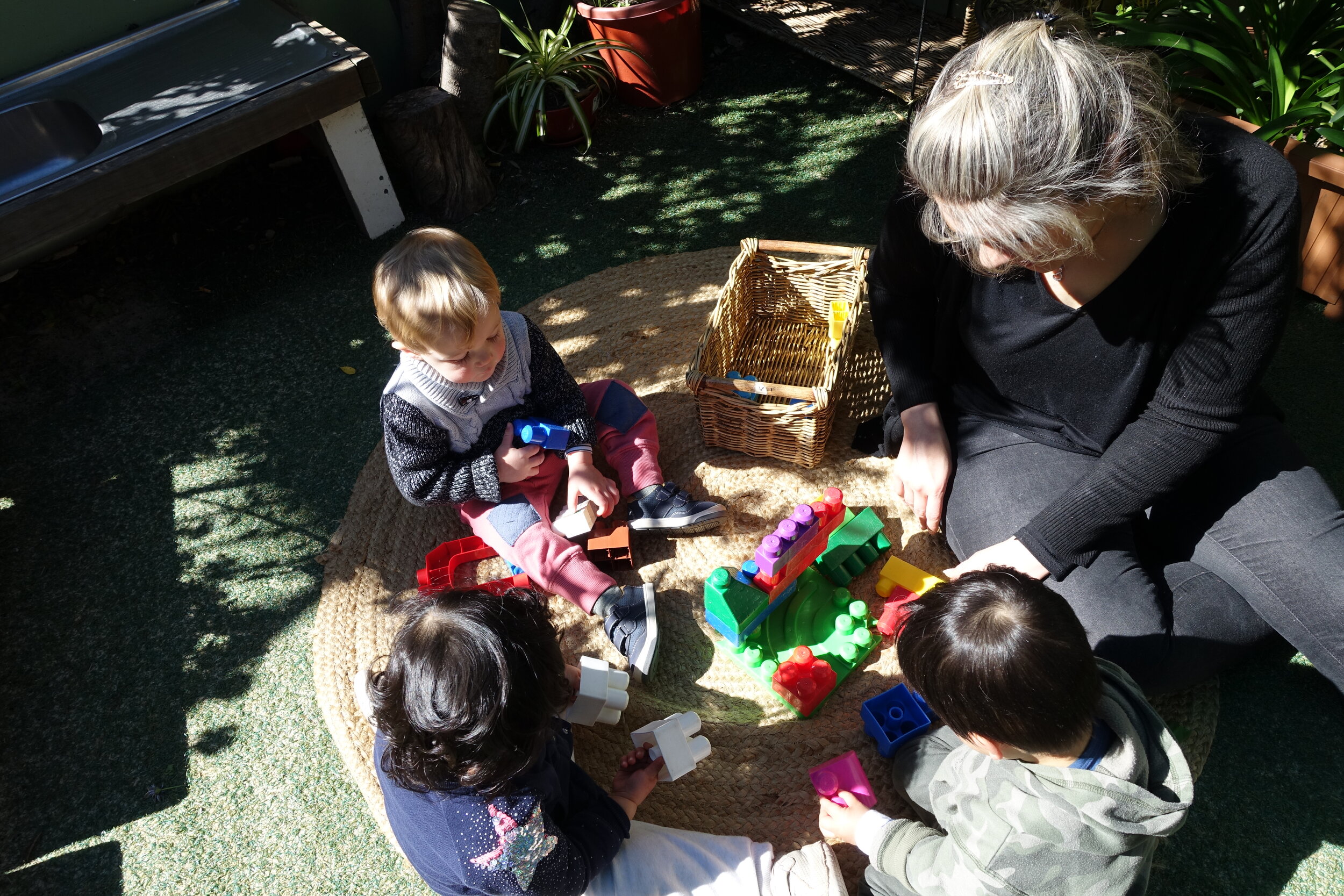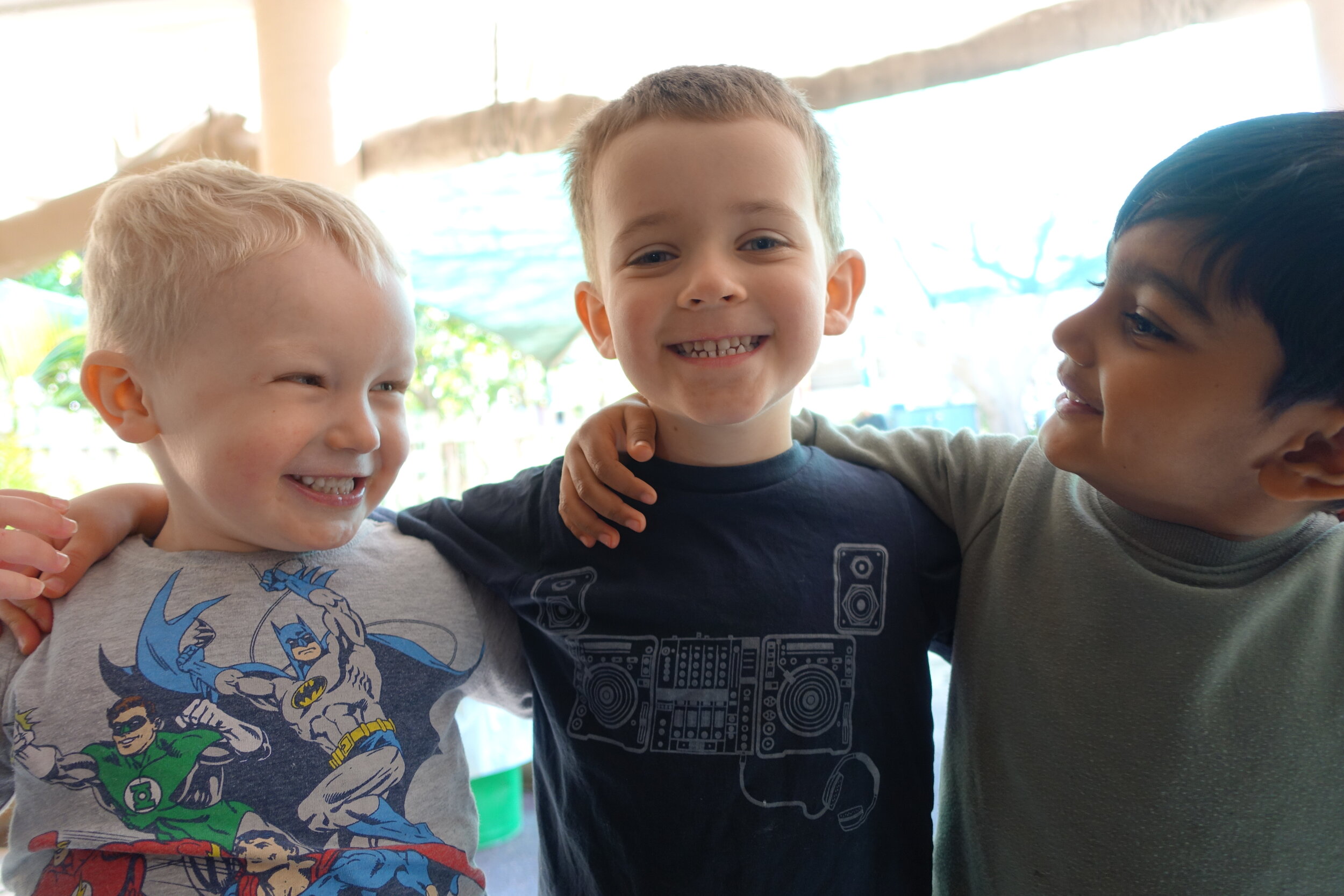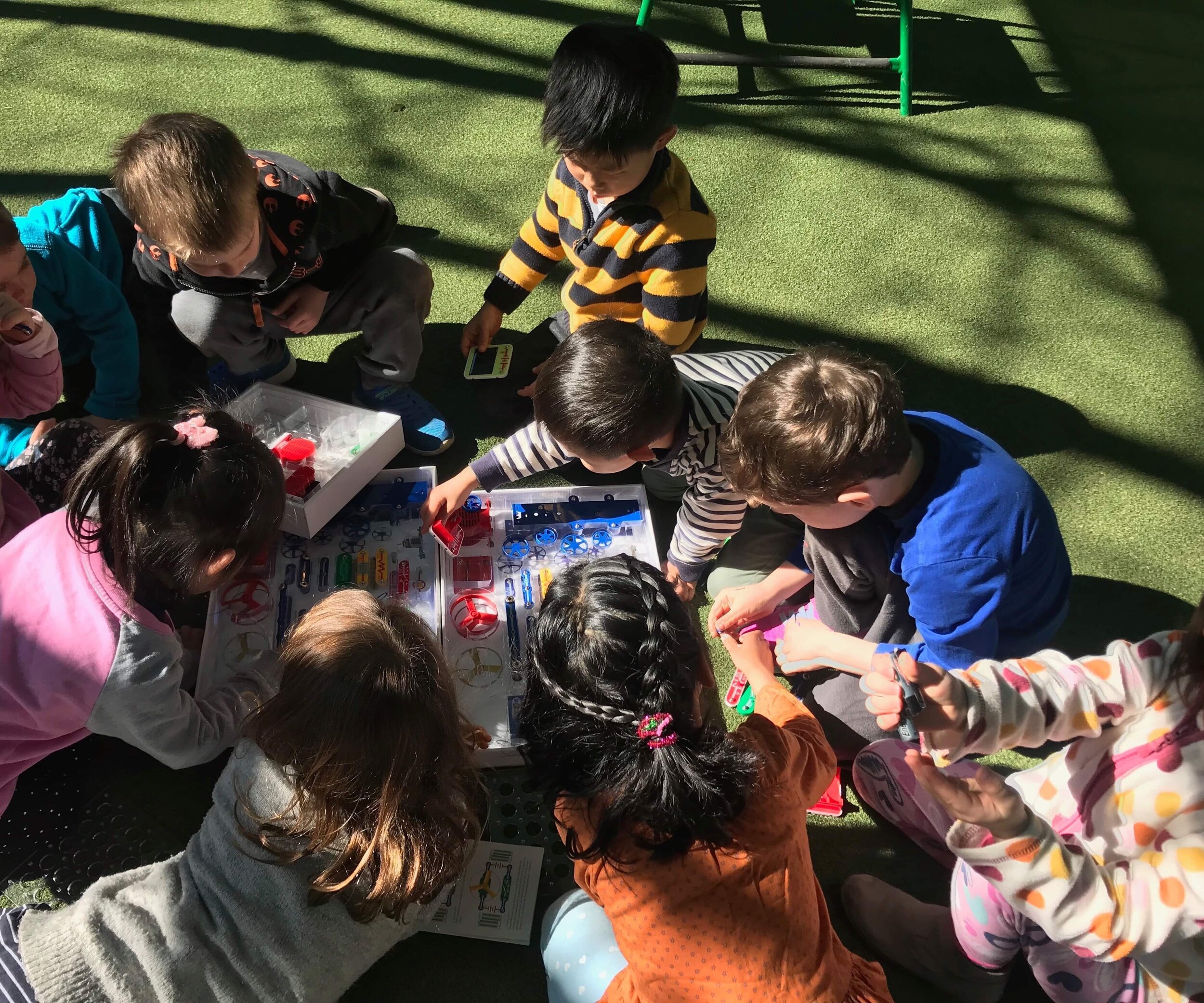Our Philosophy
Updated: June 2024
At Kelly’s Place Children’s Centre, we believe in the importance of reconciliation. As a community we would like to acknowledge the Cammeraygal People who are the traditional custodians of this land where we play. We pay our respect to all Aboriginal and Torres Strait Islander people and their elders, past, present, and emerging, and recognise their enduring connection to this land, its waters, and all living things. We seek to learn from their wisdom as we walk together.
Kelly’s Place is proudly a not-for-profit community-based centre. Our strong focus on relational pedagogy and community engagement supports and informs our values, curriculum, pedagogy and governance. We believe that the first 5 years of life are critical for wellbeing and lifelong learning. We believe in belonging to a community is essential for deep positive connection, interdependence, positive identities, security, and future growth. Our intentional play-based curriculum and pedagogy focuses on caring respectful relationships, and children’s interests, strengths and development. It is guided by our passionate experienced educators in union with families.
Kelly’s Place Core Educational Values:
Fostering RELATIONSHIPS:
We believe in strong reciprocal relational pedagogy to create genuine nurturing attachments to support a true deep sense of belonging at Kelly’s Place.
We engage in meaningful responsive interactions, and we appreciate the time it takes to establish and nourish trusting relationships. We continue to nurture and embed the 'Circle of Security’ approach within our relational pedagogy (practices).
We create a warm and welcoming environment that fosters respect, understanding, empathy and collaboration. We believe in consistency and a predictable routine to provide security and a sense of belonging and comfort.
Our educators acknowledge that families are the child’s first and most influential teacher in their life. We build strong partnerships with families to best support children’s wellbeing, holistic development and our community.
We develop mutual, respectful relationships between our educators to foster a positive culture, collaboration and teamwork. We value networking with other professionals to support our educators and community of learners.
We seek to build genuine and authentic partnerships with local Aboriginal and Torres Strait Islanders people and communities to foster relationships to gain a deeper understanding of practices and learning.
We believe it takes a village to raise a child, therefore we have strong partnerships with families and health professionals and develop connections with our local community to extend our children’s learning.
Fostering POSITIVE IDENTITIES:
We believe that every child has a unique identity. We celebrate each child and their family, honouring who they are in the present moment.
We believe everyone has the right to feel valued, to value themselves, their family rituals, histories, culture and background.
Our educators view children as confident, independent, capable, resilient learners with their strong sense of being.
We recognise and support the wellbeing of our children, educators, families and community. We are committed to fostering a positive mindset and cultivating empathy in everyone.
We respect diversity and are dedicated to working together with children, families, educators, and the community to celebrate everyone.
We acknowledge equity(fairness)and create an inclusive and culturally safe environment to embrace our diverse community and develop a positive sense of self and being.
We foster wellbeing and reinforce a positive identity for Aboriginal and Torres Strait islander children and their community.
We empower everyone to understand their rights regarding their bodies and develop positive body image and respectful mutual relationships.
Fostering a COMMUNITY OF LEARNERS:
Our ‘community of learners’ encompasses all our children, their families, our dedicated educators, our local and wider community. We continuously learn and reflect together, with each other and from each other. We acknowledge that we are changing and developing to become active citizens and the best person we can be.
We believe in play-based pedagogy with intentionality is the foundation for children’s holistic development. Play should be delightful, engaging, fun, hands-on, unhurried and challenging. Play enables children to experiment, explore, be curious, imagine, investigate, revisit, positive risk take, and problem solve. Play helps children understand relationships, knowledge, ideas and their world.
We believe children are knowledgeable, inquisitive and competent active citizens who have ideas and can engage in democratic shared decision making within our curriculum.
We recognise the importance of developing positive learning dispositions, growth mindset, wellbeing and lifelong learning skills for the holistic development of our community.
We respect the knowledge, skills, training and experiences that our educators and families and community bring to Kelly’s Place. We embrace community by supporting various excursions and incursions to enhance our community of learner’s understanding about the world.
We respectfully embrace a connection to the land within our community and strive to develop a greater understanding about Aboriginal and Torres Strait Islanders perspectives and ways of knowing and learning.
We acknowledge families are our primary partners and their views are respected and shared decision making is facilitated.
We value the vital role educators play in supporting children and family wellbeing and educator’s share knowledge about each child’s learning and development.
We acknowledge each educators’ expertise, skills and knowledge to work respectfully in collaboration to create a professional positive culture. We are committed to professional development to ensure current practices and refection is ongoing.
We are committed to providing a safe environment for children and young people. We understand our responsibilities and statutory duty of care to comply with the Child Safe Standards and to build our capacity as an organisation to prevent and respond to allegations of child abuse. Ongoing professional development for educators and staff is a priority to maintain their ability to distinguish and respond to situations of abuse and neglect, thus ensuring educators and staff are responsive to their responsibilities in keeping children safe.
We are committed to sustainable practices and the interrelationship between environment, social and economic dimensions. We embrace sustainability to promote a sense of responsibility, to care, to show fairness, equity and inclusion. While exploring the natural environment we aim to promote a positive, proactive, attitude towards protecting the land and our earth, and to care and respect others and all living things now and for the future.
We believe that social events connect our community of learners and support relational pedagogy.
At Kelly’s Place, we truly believe in relationships, positive identity and our community of learners. Children have the right to belong, to be and to become. Children have the right to feel empowered to reach their full potential. Together, Kelly’s Place celebrates the powerful journey of early childhood.
References
· Australian Government Department of Education [AGDE] (2022). Belonging, Being and Becoming: The Early Years Learning Framework for Australia (V2.0). Australian Government Department of Education for the Ministerial Council
· Early Childhood Australia (2016). Code of Ethics. Early Childhood Australia Inc.
· New South Wales Office of the Children’s Guardian (2023). Guide to the Child Safe Standards.
· Office of Children’s Guardian (2023) Child Safe Standards. NSW Government
· Scarlet, R, R. (Eds.) (2016). The Anti Bias Approach in Early Childhood (3rd). Multiverse
· United Nations Convention on the Rights of the Child, November, 20, 1989

